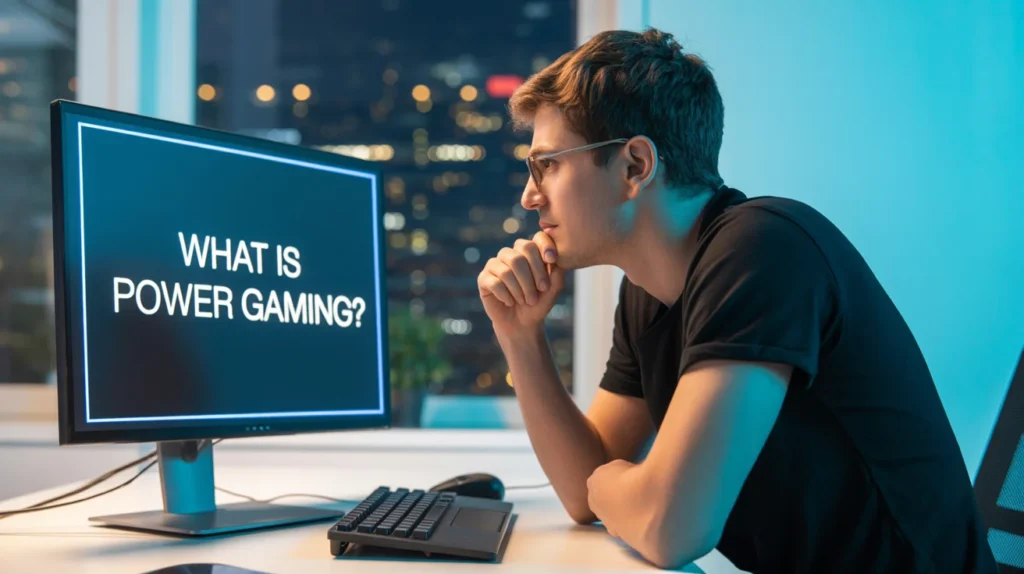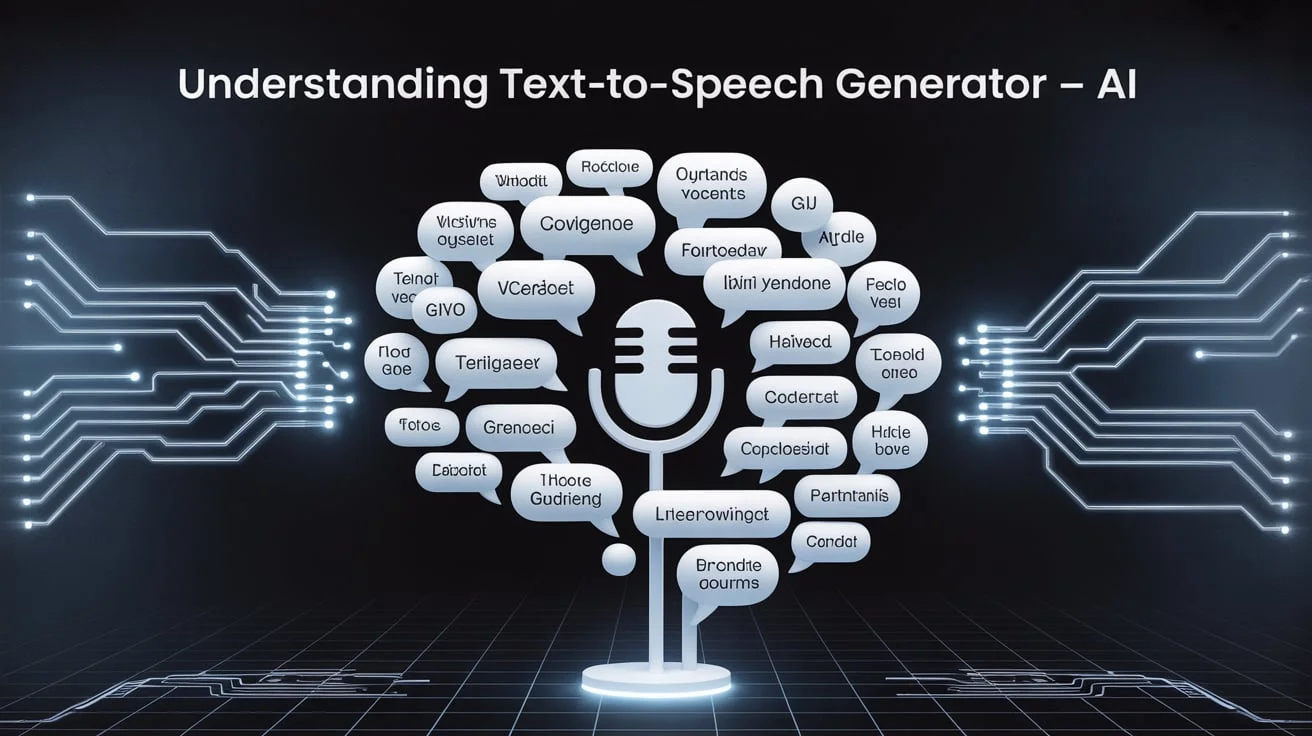What is power gaming? It is widely used in online and offline role-playing games (RPGS).
Power gaming refers to a playstyle in which a player focuses only on maximizing their character’s power, abilities, or efficiency, often at the cost of storytelling, teamwork, or game balance.
In gaming, especially MMORPGS and tabletop RPGS like Dungeons & Dragons, this behaviour can disrupt the narrative and make the experience less enjoyable for others.
This article ,What is Power Gaming? helps players and game masters create better and more balanced gameplay.
The Meaning of Power Gaming in RPGS
At its core, power gaming is about optimizing a character’s stats, skills, or strategies to gain an unfair or extreme advantage.
While it may look like a clever or competitive tactic, it usually lacks creativity, cooperation, or emotional depth.
This playstyle is often frowned upon in storytelling-based games, where narrative and character development matter more than brute force or dominance.
Power gamers usually try to win or control every situation, even in cooperative or narrative-driven settings.
The Impact of Power Gaming on Storytelling
Power gaming can negatively affect game storytelling. When one player overpowers others, the shared story becomes imbalanced. Other players may feel left out, ignored, or useless during key game moments.
Game masters often struggle to manage power gamers because they sidetrack the plot and force every scene into a competition. Instead of focusing on role-play, power gamers tend to focus on stats and advantages.
Signs of a Power Gamer
Power gamers often show clear patterns in their behaviour. You’ll notice them focusing heavily on rules, trying to exploit loopholes, or ignoring the game world’s logic for the sake of success.
They might also rush through missions or dialogues, skipping valuable content in pursuit of rewards.
These players often build overpowered characters that dominate every fight, ignoring group dynamics or the needs of other players.
- Builds characters for maximum damage or defence, not for story or realism
- Interrupts or redirects group decisions toward their goals
- Exploits game mechanics to win easily
- Avoids emotional or narrative choices in favour of optimal outcomes
- Often brags about their character’s abilities or kills
Examples of Power Gaming in Different Genres

Power gaming doesn’t look the same in every game. It takes different forms depending on the genre.
In MMORPGS, power gamers grind endlessly to reach the highest level, get the best gear, and complete raids with maxed-out builds.
Tabletop players sometimes design overpowered characters focused solely on winning, often at the cost of story depth. In single-player RPGs, they may rush progression by exploiting glitches, bypassing quests, or manipulating game mechanics.
This behaviour might be effective, but it removes the essence of exploration, challenge, and teamwork. The joy of gaming is often in the journey, not just in dominating the system.
Why Power Gaming Can Ruin the Fun
Power gaming often kills the cooperative spirit of RPGS. It creates tension within groups, as one player tries to control the narrative or outshine others.
Many players come to games for storytelling, roleplay, or emotional depth. Power gamers break that rhythm by turning everything into numbers, mechanics, and domination.
- Reduces the role-playing experience for others
- Breaks immersion by ignoring the story and world
- Causes conflict or resentment in group settings
- Forces game masters to adjust the game unnaturally.
- Undermines the creativity and flow of shared storytelling
Power Gaming vs. Min-Maxing: Are They the Same?
These terms are often used interchangeably, but they’re not the same. Min-maxing means building a character with optimal stats and skills maximizing strengths and minimizing weaknesses. It can still be done concerning the story and other players.
Power gaming, however, goes beyond that. It disregards collaboration or narrative and focuses only on personal dominance. Min-maxing is a tool; power gaming is a mindset that prioritizes power over fun or balance.
How to Handle Power Gaming as a Game Master
If you’re a game master dealing with a power gamer, there are ways to keep the game enjoyable for everyone.
Start with a conversation. Many power gamers don’t realize they’re causing issues. Let them know how their playstyle is affecting the group. Set clear expectations during session zero.
Build campaigns that reward creativity, roleplay, and group problem-solving rather than raw power.
If needed, balance your encounters and story elements to challenge power gamers in non-traditional ways. Focus on puzzles, diplomacy, or emotional decisions where brute force won’t help.
The Psychology Behind Power Gaming
Understanding why players’ power game can help reduce conflict. Some players seek control, especially in games, because it gives them a sense of order or self-worth. Others enjoy the challenge of mastering a system or proving their intelligence through optimization.
Still, it’s essential to help them understand the value of teamwork, story, and fun. Games are not just systems to conquer; they are experiences to share.
- Some seek validation through strength or dominance.
- Others view games as puzzles to master
- Few realise the impact of their style on others.
- Many simply follow habits learned from other games.
- Communication can change behaviour gradually.
How to Avoid Becoming a Power Gamer
It’s okay to want strong characters, but balance matters. Focus on building characters with flaws, backgrounds, and emotional arcs.
Play with the group, not against it. Choose actions that suit the character’s story, not just those that offer rewards.
If you enjoy optimisation, use it to enhance, not dominate, the experience. Ask your fellow players and the game master if your choices support the group’s goals. Make sure you’re contributing to the story and fun.
Tips for Creating Balanced Characters
Balanced characters are fun to play and more engaging for others. Here are some quick tips to avoid falling into power gaming habits:
- Give your character emotional flaws or weaknesses
- Make choices based on roleplay, not just rewards.
- Support other players in their storylines.
- Talk to your game master about your play style.
- Be open to character growth beyond stats and skills.
Conclusion
What is Power Gaming? It’s a mindset that prioritizes dominance over shared enjoyment. While optimizing every move can be tempting, the essence of role-playing lies in storytelling, teamwork, and emotional growth.
Recognizing and managing power gaming can transform frustrating sessions into meaningful experiences. Game masters, players, and even power gamers can contribute to a more balanced and enjoyable journey when everyone respects the game, the story, and each other.
Frequently Asked Questions:
Q1: Is power gaming bad?
Not always, but it often disrupts narrative and group play in story-driven games.
Q2: Can power gamers change?
Yes. With guidance and communication, most power gamers can shift to a more collaborative style.
Q3: Is power gaming common in video games?
Yes, especially in competitive or loot-driven games like MMOS or PvP games.
Q4: What’s the difference between power gaming and being good at a game?
Being reasonable means mastering gameplay respectfully. Power gaming often disregards others and game balance.
Q5: Should game masters allow power gamers in their campaigns?
Yes, but set clear expectations to ensure group harmony.




